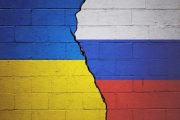
SINGAPORE — On April 5, U.S. House Speaker Kevin McCarthy met Taiwan’s President Tsai Ing-wen at the Ronald Reagan Presidential Library in Simi Valley, California, becoming the highest ranking U.S. figure to meet a Taiwanese leader on American soil in years.
Although Washington has no official ties with Taiwan, it is legally bound to supply the island with the wherewithal to protect itself in case of a military incursion from China, which has vowed to reunite the island with the mainland by force if necessary.
Standing with Tsai in front of a blue-and-white Boeing aircraft that Reagan flew on as U.S. president in the 1980s, McCarthy hailed the friendship between the people of Taiwan and America as “a matter of profound importance to the free world.”
At a subsequent news conference alongside Republican and Democratic lawmakers who were present at the meeting with Tsai, McCarthy revealed that both sides had discussed hastening arms deliveries to Taiwan.
“We must continue the arms sales to Taiwan and make sure such sales reach Taiwan on a very timely basis,” he said, elaborating that he thought there was bipartisan agreement on this. “Second, we must strengthen our economic cooperation, particularly with trade and technology.”
Mike Gallagher (Wis.), Republican chairman of the House Select Committee on the Chinese Communist Party (CCP), said after the meeting that he would like to explore means to transfer Harpoon anti-ship missiles to Taiwan before sending some to Saudi Arabia. U.S. officials assert that weapons such as the Harpoon missile are more crucial for Taiwan’s defense than the heavy weaponry that the island’s military has traditionally purchased from the United States.
China’s Foreign Ministry spokesman Mao Ning slammed the Tsai-McCarthy meeting, blaming the U.S. for colluding with separatists promoting “Taiwan independence” and accusing America of violating its commitments over Taiwan. “China will take firm and forceful measures to firmly safeguard national sovereignty and territorial integrity,” Mao said.
Although Chinese state media simply decried the meeting in California, state television said in a commentary that those who champion Taiwan’s independence will “have their bodies smashed to pieces and bones ground to powder.”
China did not threaten any particular reprisal, but mobilized warships through waters around Taiwan on Thursday, April 6, and maritime authorities in China’s Fujian province staged a three-day special patrol and inspection operation in the Taiwan Strait. Taiwan strongly protested the move.
Tsai thanked the U.S. Congress for backing Taiwan in the face of China’s threat, and cited former U.S. President Reagan, saying that “to preserve peace, we must be strong.”
Tsai’s meeting with McCarthy came at a time of worsening U.S.-Chinese relations — with bilateral ties at their lowest point since both countries set up diplomatic relations in 1979, analysts opined.
Fears are rising among Western officials that China, which conducted war games around Taiwan following a visit by then-House Speaker Nancy Pelosi in August 2022, could try to reunite with Taiwan by force in the near future.
While in Brussels, U.S. Secretary of State Antony Blinken declared that there was nothing new in Tsai’s transits, and that such stops were “private” and “unofficial.” “Beijing should not use the transit as an excuse to take any actions to ratchet up tensions, to further push it changing the status quo,” he said.
Supporters waving Taiwanese flags and pro-Taiwan and Hong Kong banners chanted “Jiayou Taiwan” — the equivalent of “Go Taiwan” — outside the Reagan Library. On the other hand, a small plane flew around with a pro-Beijing banner saying “One China! Taiwan is part of China!”
Xu Xueyuan, charge d’affaires at China’s Washington embassy, had warned that the Tsai-McCarthy meeting “could lead to another serious confrontation in the China-U.S. relationship.” When the meeting did take place, China’s Defense Ministry said, “In response to the seriously erroneous acts of collusion between the United States and Taiwan, China will take resolute and effective measures to safeguard national sovereignty and territorial integrity.”
Wednesday’s meeting “gravely violated the one-China principle,” the ministry added, alluding to the policy formally recognized by the United States for decades. “The Taiwan question is at the very core of China’s core interests and the first red line that must not be crossed in China-U.S. relations. The [People’s Liberation Army] will resolutely safeguard China’s sovereignty and territorial integrity, as well as the peace and stability across the Taiwan Strait.”
While McCarthy indicated he had no current plans to go to Taiwan, he said this did not imply he eventually would not, and said China could not tell him where he could go or whom he could meet.
China’s CCP, despite claiming the importance of bilateral commitments when it comes to defending its own priorities, as can be seen in the U.S.-China spat over Taiwan, evidently has no qualms about breaching agreements when it comes to other states’ interests.
For example, on April 4, notwithstanding the Sino-Vatican agreement of October 2018, Beijing installed a new bishop, Shen Bin, for the diocese of Shanghai, without consulting the Holy See. Chinese diplomats did not inform the Vatican, but the Vatican authorities had to learn of the news via the press after being informed a few days earlier that Bishop Shen Bin had relocated from Jiangsu province to Shanghai.
Rome posits that Bishop Shen’s appointment was a unilateral move that violated the 2018 agreement, the latter reportedly intended to boost ties between the papacy and the Chinese communist regime, renewed twice since its onset.
This is not the first time Beijing has breached the 2018 agreement with the Vatican. Four months ago, Rome disputed the CCP’s installation of Bishop John Peng Weizhao as auxiliary bishop of the diocese of Jiangxi, a diocese that the Holy See does not recognize. During his installation ceremony, Bishop Peng said that he wanted to “positively lead the Catholic Church to conform to socialist society.”
Both actions indicate that the CCP does not feel obliged to abide by the deal with the Vatican. Moreover, the agreement has not put a stop to the CCP’s brutal persecution of Catholics, as the recent prosecution of Cardinal Joseph Zen, the former bishop of Hong Kong, has demonstrated.
According to the 2018 agreement, Rome would tolerate the fact that China’s state-run Patriotic Association would have a say in the country’s bishop selection process, but, in return, Beijing had to accept that the pope would have the final say on these nominations.




